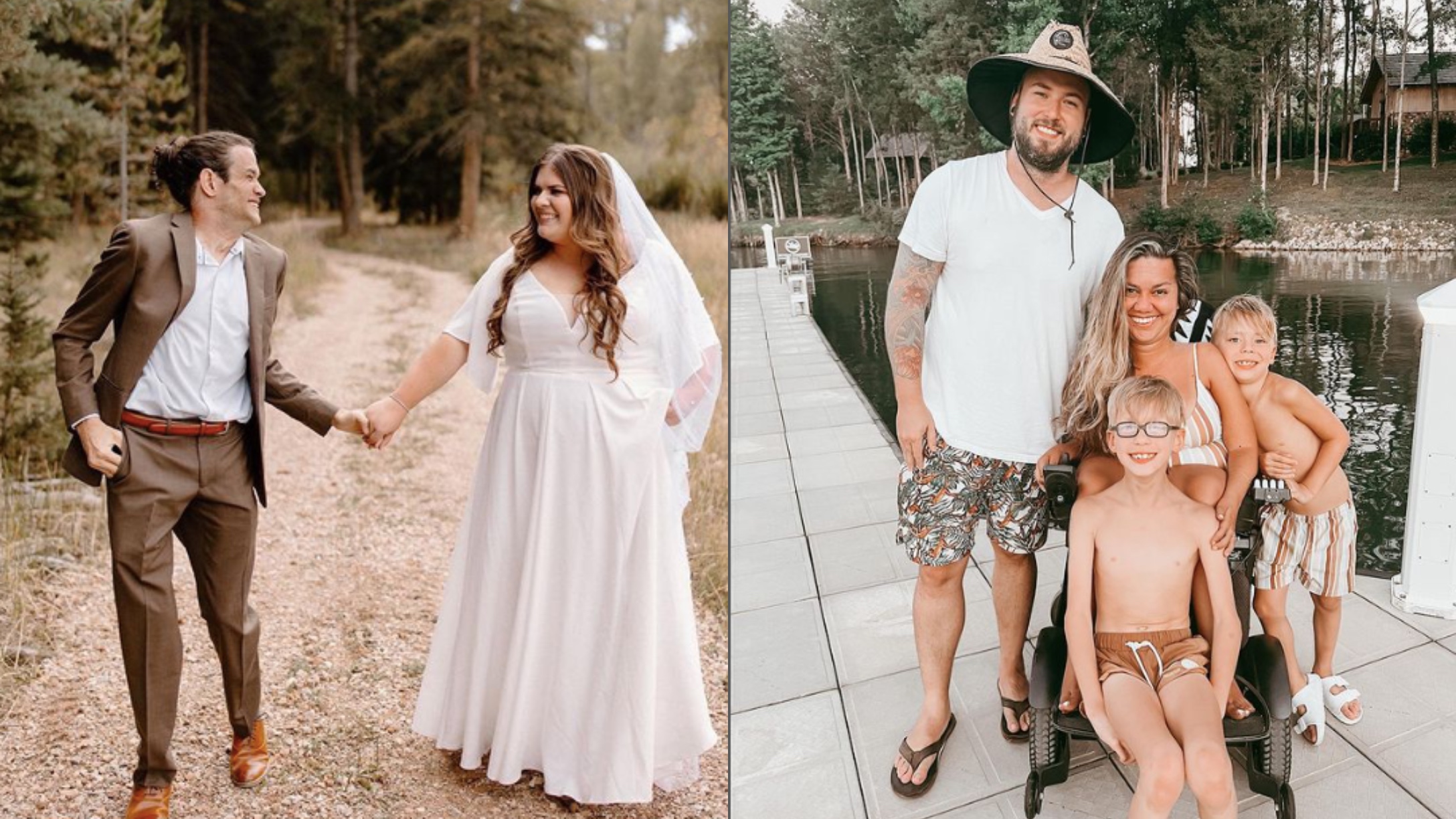
If we’re honest, we’re all guilty of looking at couples, whether in person or through images, and making judgments about the nature of their relationships. But there’s a fine line between the natural judgments and questions we keep to ourselves and the ones we inappropriately ask or direct toward the couple themselves.
Any person in a relationship could be the recipient of this type of judgment. But couples in interabled relationships likely get more than their fair share.
More from CafeMom: Man Humiliates His Wife at Their Son's 1st Birthday Party & It's a Major Red Flag
Nearly 70 million people in the US are disabled.
An interabled relationship is one in which one partner in the couple has a disability and the other does not. These relationships may be rare in terms of media representation, but with up to 1 in 4 adults living with a disability in the US, they’re more common than you might think.
Two couples who are often on the receiving end of very personal inquiries and judgment want you to know a few things about how you should and shouldn’t approach and interact with interabled couples.
More from CafeMom: TikTok Couple Shares Controversial Marriage Rules & People Are Giving Them Major Side-Eye
Megan and Jake DeJarnett have been together since high school.
Megan and Jake DeJarnett have been married for 12 years. They were high school sweethearts. But when people see the two of them out together, people make all types of assumptions about their relationship — and often share them.
“Many people will just view Jake as the hero for basically taking care of me and loving me, just because I’m in a wheelchair,” Megan told Newsweek.
Megan was born with spinal muscular atrophy type II. It’s a genetic condition that causes muscles to weaken over time. She’s used a wheelchair since she was 4 years old.
People assume Megan is overly dependent on her husband, but they are an equal partnership.
“People just assume that because I’m in a wheelchair I have all the needs, but if you want to ask my husband, he’ll tell you that it’s very much a 50/50 relationship and that we’ve both put hard work into it.” Like most healthy relationship dynamics, each partner contributes according to their strengths. “Everybody has something to give no matter what your disability or abilities, or relationship paths.”
Identifying those individual strengths was particularly important for Megan and Jake, who run a business together. “I do all the administrative work and bookkeeping and I help keep him on schedule and calendaring and those kinds of things,” Megan explained. “He might do some of the more physical things and that is what a healthy balance looks like.”
For the DeJarnetts, and so many other couples, the most important aspect of their relationship is communication and having a clear understanding about how to meet each other’s needs.
Elyse Rucker and Jason Flynn have been married for less than a year.
Elyse Rucker and Jason Flynn are a newly married interabled couple. Elyse doesn’t have a disability but her husband Jason has cerebral palsy and is hard of hearing. Elyse, who is a speech therapist, explained how they navigate their relationship.
“We use different modes of communication. Because of his physical disability, he is unable to do a few things that I help with. For the most part, we are just a normal couple. We make adjustments based on need. It's like second nature now and I hardly give it a second thought," she said.
Elyse performs some of the physical tasks Jason cannot, while he does laundry, dishes, and other household duties because Elyse works away from home. “It’s the same [as any other relationship] we just have a few modifications to our daily lives to accommodate his needs."
Elyse says people's perceptions are the biggest challenge to their relationship.
Elyse, who knew Jason was the one after their first meeting, said the most difficult aspect of their relationship is other people’s perceptions of them. "People assume Jason is my brother or that he's mentally incompetent, or that I'm his 'helper,'" she said. “Some people can't see him, a disabled person, as capable of being in a romantic relationship.”
But these strangers don’t just stop at assumptions. They often ask questions. “Multiple strangers have asked us if he's my brother, called him a 'big boy,' asked if we have sex, etc. It's honestly maddening."
Elyse wants people to know that a disability does not mean someone is incapable of being in a romantic relationship. “Just because someone is disabled does not bar them from being a wonderful and worthy partner,” Elyse explained. “Disabled individuals deserve love too. Don't make assumptions because someone is disabled. Learn from the disabled community, listen to the disabled community."




